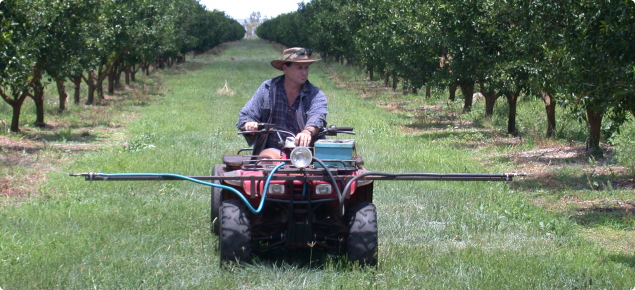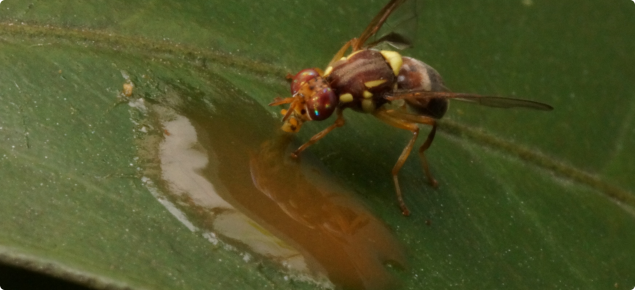When do I need to start?
- Commence weekly baiting when fruit is half size. Where medfly pressure is high, start after fruit set.
- Apply baits at least once per week as the insecticide mixure is not effective beyond this. Do not apply bait to the same tree more than once a week, due to potential problems with phytotoxicity.
- Bait twice weekly if trapping indicates that fly numbers are constantly > 1 fly/trap/week. Alternate the rows or trees you spray, so you are only baiting any tree only once in any one week. Look for stings and consider cover spraying if necessary.
- Baiting your entire orchard is more effective than baiting just a few blocks.
- Choose a regular morning and day for your baiting, and program it into your orchard management plans.
- Reapply bait if it rains.
- Bait wind breaks and other non-fruit evergreen trees in the orchard.
Best time of day to bait
-
Bait in the morning to the foliage (aim for middle to top of tree) so that fresh bait is available when flies start to feed.
When can I stop baiting?
- Continue baiting a block for at least four weeks after harvest, to ensure that flies emerging from the soil are killed.
- Continue to treat any citrus trees (regardless of whether they have fruit) while fruit is on the other trees, as citrus are favoured resting places for Medfly.
- Baiting in autumn is also recommended as Medflies present are the source of next year's population.



